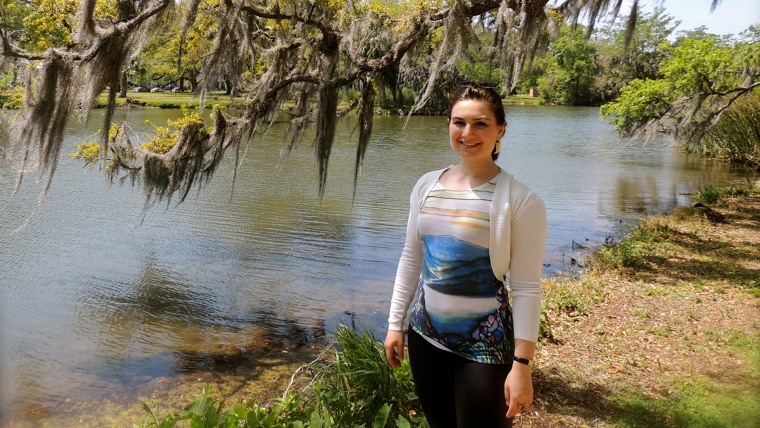Thinking about freezing your eggs to buy yourself a few more baby-making years? Not so fast, says the American College of Obstetricians and Gynecologists.
The doctor’s organization issued a statement Monday warning healthy women not to use egg freezing to pause their biological clocks. “We don’t want to give patients the impression that this technology can guarantee a successful pregnancy,” explains Samantha Butts, M.D., assistant professor of obstetrics and gynecology at the Hospital of the University of Pennsylvania, who was on the committee that issued the statement.
“We are not endorsing widespread use of egg freezing for women who want to delay motherhood,” says Butts, explaining that it should only be used for women who are facing cancer or other medical treatments that could destroy their fertility. “We still need to study it more to determine its safety, ethics and cost-effectiveness.”
The warning comes in the middle of egg freezing’s cultural moment. Last fall, the American Society for Reproductive Medicine welcomed the procedure to the mainstream by removing the "experimental" label and acknowledging freezing techniques that resulted in similar in-vitro fertilization success rates as fresh eggs. A string of celebrities, like Sofia Vergara, boasted of their recent trips to the freezer. More than half of fertility clinics now offer the procedure, which costs between $7,000 and $12,000, and doctors are reporting a surge of inquiries.
Sarah Wickliffe, a 29-year-old graphic designer from New York, had broached the topic with her ob-gyn over the past few years, but the doctor pooh-poohed the idea, saying she was too young. But then Wickliffe broke up with her boyfriend of three years and was diagnosed with polycystic ovary syndrome, a hormone disorder affecting 5 percent to 10 percent of women of childbearing age that can cause infertility.
Scared that she’d have trouble getting pregnant by the time she found love, Wickliffe asked her doctor again if she should consider freezing her eggs. The doctor referred her to a fertility doctor, who last summer prescribed Wickliffe two weeks of hormone shots and surgically retrieved 12 eggs to be used when she was ready to have children. “I thought that if I had the chance to put away eggs that are healthy now, I should do it,” explains Wickliffe. “I’d have some insurance, no matter what happened in my love live. My younger eggs would be waiting for me.”
Since egg freezing became available in the U.S. a decade ago, many doctors haven’t felt comfortable recommending it to women who planned to put off starting a family while they searched for romantic partners or waited for a better time in their careers. The issue: What if women waited until their mid-40's to use them? If their eggs didn’t work, their natural fertility would be gone, and they’d be left empty-handed. Since the science is so new, it’s too early to tell how the option to stash away some fertility for later will affect women’s life choices. Yet a recent survey of nearly 200 women who had frozen their eggs between 2005 and 2011 at New York University Langone Medical Center that was published in Fertility & Sterility found that 59 percent of egg freezing patients viewed egg freezing as a backup plan in case natural pregnancy became impossible, 38 percent regarded it as a backup plan and a way to defer conventional reproduction, and only 3 percent thought about it mainly as a way to put off having children.
After going through a breakup with her boyfriend of two years just before her 40th birthday, Mimi Clarke, a horticulturalist from San Francisco, froze 16 eggs at the Pacific Fertility Center in San Francisco in 2011. But she waited only a year before deciding to use them. “I tried meeting someone else through online dating or hoping I would meet someone walking the dog or at a party, but when that didn’t happen, I realized I didn't want to wait any longer to be a mom,” she says. “I decided I would do it on my own.”
She also wanted to take advantage of her remaining fertility and underwent three rounds of intrauterine insemination in which doctors injected donor sperm directly into her uterus during ovulation. When those failed, she decided to thaw her eggs. Doctors implanted one resulting embryo and froze the other. Clarke is scheduled to deliver a baby girl next month.
Dr. Butts hopes this latest round of warnings against so-called “social” egg freezing will encourage ob-gyns to initiate discussions with patients about their family plans from a young age and talk about alternatives to egg freezing, such as the more reliable method of freezing embryos with donor sperm, or simply trying to get pregnant at a younger age without a partner.
In the meantime, counselors like Izetta Siegal Stern, who organizes support groups sponsored by the American Fertility Association for women considering egg freezing, urges ob-gyns to include egg freezing in those discussions, so women can make their own informed decisions. “I understand that these professional associations would like to see more research data on all aspects of elective egg freezing, but this will take years, and those maybe will be lost years for women who could benefit from egg freezing now,” she says.
Wickliffe hopes she won’t need to use her eggs. Since she froze her eggs, she’s in another serious relationship and would like to start her family by her mid-30s. “The doctors told me it wasn’t a sure thing,” she says. “I don’t want to take the risk that it might not work.”
Sarah Elizabeth Richards is a New York City writer and author of "Motherhood, Rescheduled: The New Frontier of Egg Freezing and the Women Who Tried It."
